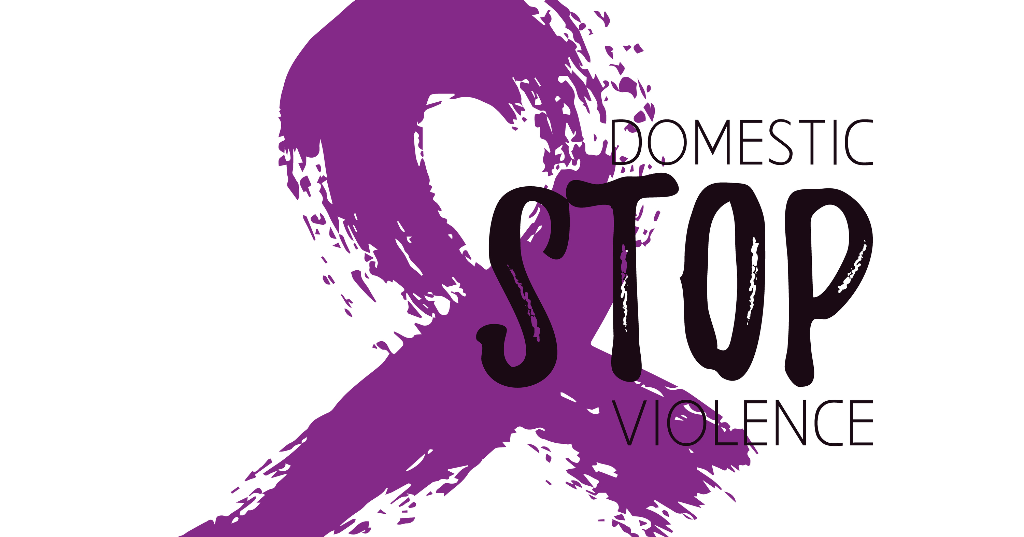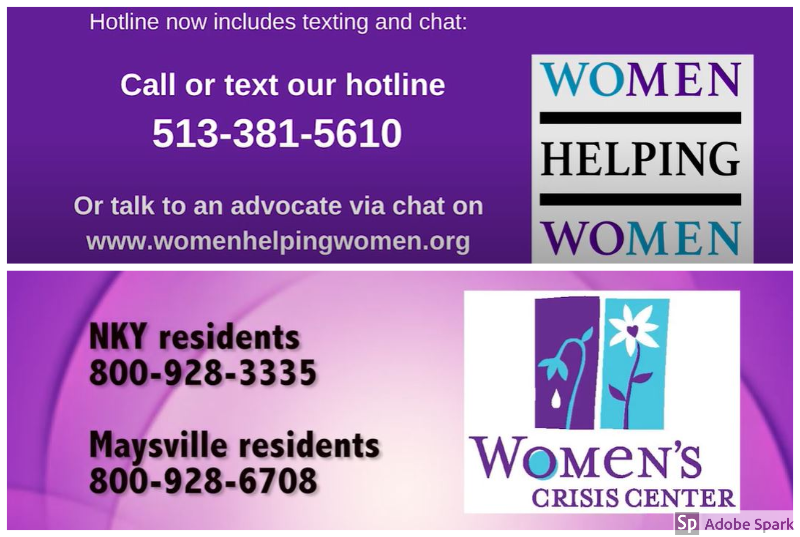
When the Library closed to the public in response to the COIVD-19 (coronavirus) pandemic, we immediately put our collective energy into coming up with new and creative ways to reach our community members. One way is by partnering with local access channel Waycross Community Media, opens a new window.
“At the onset of the COVID-19 pandemic, Waycross Community Media generously reached out to our Library to produce video segments that connect community members to essential Library and community resources,” said David Siders, Civic Engagement Coordinator for the Library.
Addressing domestic violence in our community
When stay-at-home orders were put into place by governors across the country to help save lives during the COVID-19 outbreak, it also laid bare the fact that home isn’t a safe place for everyone. What do you do if you’re quarantined with an abuser? Who do you turn to? Where do you go?
To answer these questions and more, the Library and Waycross teamed up with Christy Burch, executive director of the Women’s Crisis Center, opens a new window, and Kristin Shrimplin, president and CEO of Women Helping Women, opens a new window, for a discussion about gender-based violence on the local access show “County Fare” moderated by the Downtown Main Library's social worker Rachael Winters.
“Waycross Producer Dana Gagnon was intent on expediting the production of this ‘Domestic Violence Resources’ segment to connect people to vital regional resources that are needed now more than ever due to stay-at-home orders,” said Siders.
Domestic violence can impact anyone
Since states issued stay-at-home orders in the wake of the COVID-19 outbreak, we’ve seen an increase in cases both locally and globally.
“We know that just because [this pandemic] is happening, doesn’t mean domestic violence and sexual violence are stopping,” said Burch of the Women’s Crisis Center. “We think ‘What is domestic violence, or intimate partner violence?’ Or sometimes you may hear it as power-based personal violence. The thing that you really need to remember is it’s all about power and control. It’s all about somebody having the power and control over another person.”
And it can happen to anyone, regardless of socioeconomic background, race, religion, or gender identity.
Gender-based violence is a public health epidemic. “It may disproportionately impact certain populations, but when we’re looking at public health epidemics, 1 in 3 women may experience [gender-based violence] in their lifetime,” said Shrimplin of Women Helping Women. “One out of 3 teens experience dating violence or sexual violence. When we have 1 out of 4 teen girls before the age of 18 experiencing sexual violence, that tells us this is a public health epidemic. Or 2 out of 3 children in our homes are exposed to trauma? How do we respond to this epidemic during a [global] pandemic?

While their agency's names both contain the word “women” Burch and Shrimplin make it clear that their organizations serve all survivors regardless of gender identity. And their agencies are open and here to help.
“We’ve been hearing abusers are telling the people they are hurting that crisis centers are closed or police won’t respond—that they can’t get services right now. We are here. All of our agencies in the region are working so hard. We’re taking care of folks who are impacted by violence,” said Burch.
Continuing to serve survivors
Agencies all around the region are taking extra health and safety precautions to keep their services accessible to all who need them.
Here are some of the steps Women Helping Women and the Women's Crisis Center have taken to keep both staff and the survivors they serve safe:
- Providing free online crisis teletherapy
- Video support group meetings
- Adding text and online chat features to 24-hour hotline services (Women Helping Women)
- Continuing to provide assistance with obtaining protection orders and navigating the legal system
- Rotating a select group of staff in and out of shelters to limit exposure and asking them to self-isolate when not on duty (Women's Crisis Center)
- Removing outdoor footwear upon entering the shelter (Women's Crisis Center)
- Intense cleaning protocols in shelters that occur at least twice per shift (Women's Crisis Center)
- Obtaining hotel rooms when a shelter isn't safe or available, especially for frontline workers
Even though in-person advocacy isn't taking place at the moment, the resources for survivors are still readily available. “I want to be very clear," said Shrimplin. "Survivors absolutely still can receive emergency treatment services. If you’re calling 911 the police will show up. [You] can go to the hospitals. [You] absolutely, if [you] choose that, can be seen. We’ve triaged with the hospitals so they know should a survivor present for domestic violence or sexual assault, to call [Women Helping Women] and we’ll take it from there [on our hotline].”
You can watch the full panel discussion about domestic violence below.
If you or someone you know is experiencing power-based personal violence you can contact the YWCA, opens a new window at 513-872-9259 or 888-872-9259, Women Helping Women, opens a new window by phone and text at 513-381-5610, and the Women’s Crisis Center, opens a new window at 800-928-3335 for Northern Kentucky residents and 800-928-6708 for Maysville residents. You also can reach the CrisisTextLine.org , opens a new windowby texting 741741 and The National Domestic Violence Hotline, opens a new window can be reached at 800-799-7233. You are not alone.
For the latest Library service updates and resources, please visit our COVID-19 resource page, opens a new window.


Add a comment to: When home isn’t a safe place: combatting the rise in domestic violence